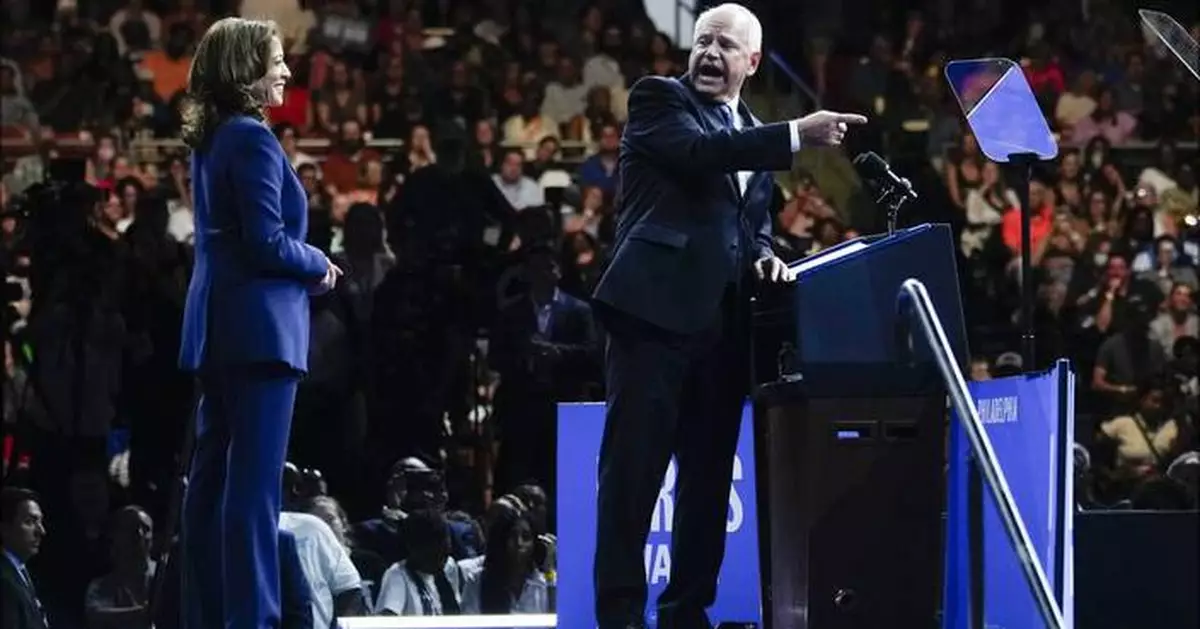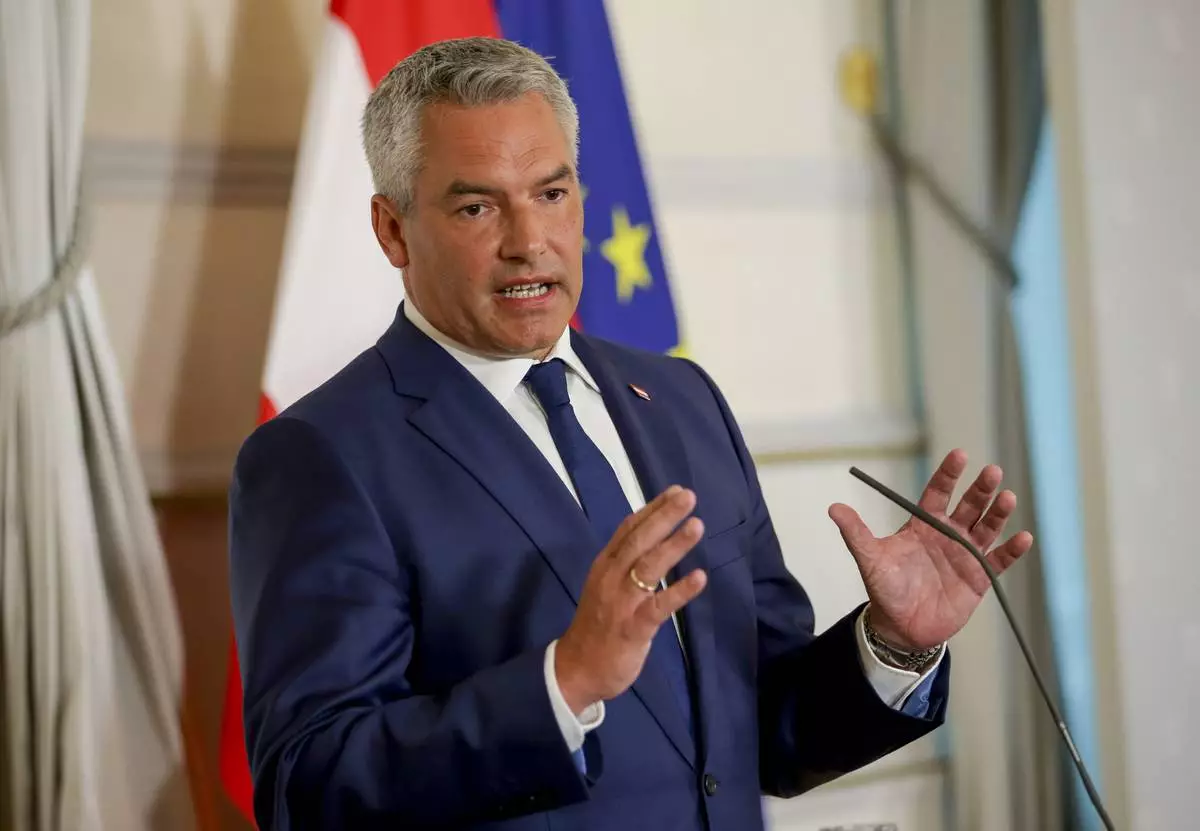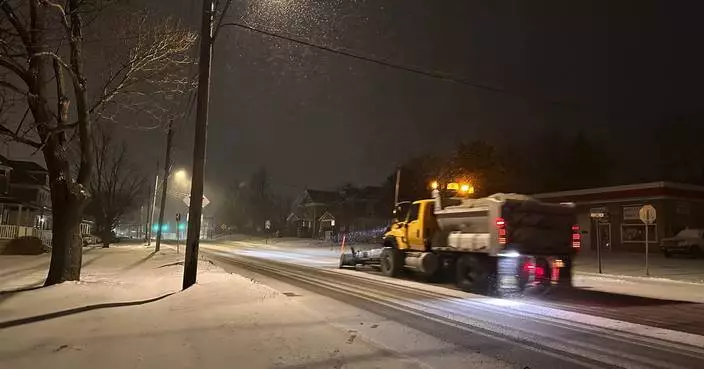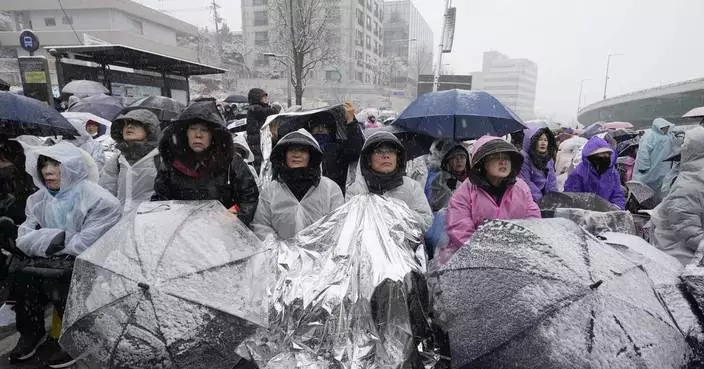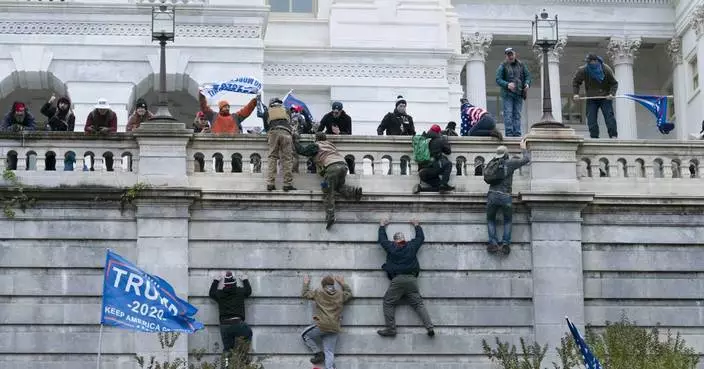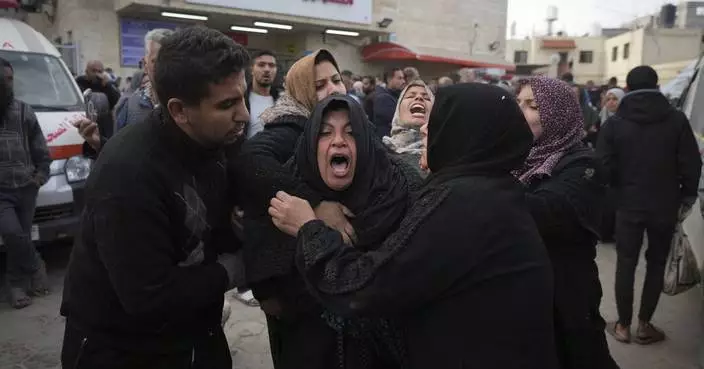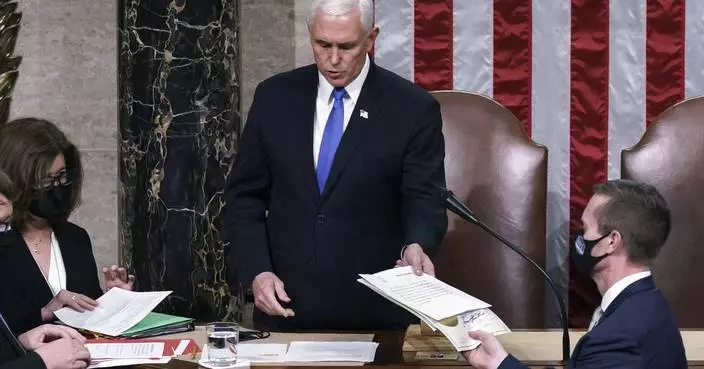WASHINGTON (AP) — The stage is set for an election that was unimaginable mere weeks ago when President Joe Biden was atop the Democratic ticket. Now Vice President Kamala Harris has tapped Minnesota Gov. Tim Walz as her running mate to take on Republican Donald Trump and his No. 2, Ohio Sen. JD Vance.
As different as they are, Walz and Vance both qualify as picks meant to reassure their party’s loyal base voters rather than adding homegrown heft in a critical battleground state.
The two No. 2s will also get a chance to square off in almost real time as Walz is traveling this week with Harris to Pennsylvania, Wisconsin, Michigan, Arizona and Nevada, while Vance will follow an overlapping itinerary to offer his own counterprograming in some places.
Some takeaways on the race now that Harris has settled on Walz:
Opting for the Minnesota governor immediately calms the Democratic Party’s left wing, which was worried that another contender, Pennsylvania Gov. Josh Shapiro, might have pushed the party closer to Israel and disheartened Arab American and younger voters. Some in Harris' inner circle saw Walz as a do-no-harm choice who can keep the party unified heading into the Democratic National Convention opening in Chicago on Aug. 19.
Progressives are already celebrating Walz’s ability to deliver an unapologetically populist message in the style of a Midwestern dad who recalls the social studies teacher and football coach he once was.
Activists who for months have followed Biden around the country to protest his full-throated support for Israel in its war with Hamas in Gaza are hopeful that Walz will help Harris take a more nuanced approach than someone like Shapiro.
But some critics will point to 2016, when the only other woman to be nominated for president, Hillary Clinton, picked a mild-mannered dad with centrist views and a modest national profile: Sen. Tim Kaine of Virginia. That ticket lost to Trump.
Neither vice presidential pick seems to do much to build out his party’s coalition — a sign that both campaigns view this election as about boosting turnout from their existing bases.
Just as Walz hails from the solidly Democratic state of Minnesota, Vance comes from the safely Republican state of Ohio. There is a bet that each choice can radiate Midwestern appeal to the key “blue wall" states of Michigan, Pennsylvania and Wisconsin simply by dint of geographical proximity.
Harris allies have stressed Walz’s ability to appeal to rural voters, although his 2022 reelection as governor roughly matched the margins of Joe Biden’s 2020 presidential win in Minnesota. Trump won 6 in 10 rural and small town voters nationwide in 2020, according to AP VoteCast.
The Trump campaign was quick to try to connect Walz to its characterizations of Harris as a California liberal, saying his support for gun control and teachers unions make him a “West Coast wannabe.”
Vance, for his part, comes from a state that has twice backed Trump by 8 percentage points. Just like the former president with his book “Trump: The Art of the Deal,” Vance achieved national recognition with his memoir, “Hillbilly Elegy.” Vance has mainly played to cultural and policy issues favored by strict adherents of Trump's “Make America Great Again” movement such as cutting military support for Ukraine.
Vance is set to follow an overlapping itinerary to Harris and Walz over the next two days, including stops in the battleground states of Pennsylvania, Michigan and Wisconsin. His role is to attack the Biden administration's policies and tear down Harris’ record on the economy, public safety and immigration.
Vance got out ahead of the Democrats in Philadelphia on Tuesday, holding an event hours before Harris was to formally introduce her new running mate at a rally. He said during his Philadelphia stop that “I absolutely want to debate Tim Walz," but not until after the Democratic convention.
Harris' team seemed to be happy to have Vance making the contrast with the Democrats.
“We appreciate JD Vance providing voters in battleground states exactly the split-screen that defines the choice this November,” said Harris campaign spokesman Charles Lutvak.
Walz’s selection settled one big question mark among Democrats, but plenty of major challenges remain for the final months of a race already defined by its unexpected twists and turns.
There is the prospect of a wider war in the Middle East, the possibility of a rate cut by the Federal Reserve that might calm global financial markets and questions about whether Trump and Harris will actually square off in a September debate that was set before Biden bowed out of the race.
No matter what happens, the conventional narratives of a presidential campaign have already had seemingly brief shelf lives. Voters over the past few weeks have dealt with Biden's disastrous performance in the June 27 debate against Trump, a brazen assassination attempt on Trump, Biden's exit from the race and Harris' quick ascendance among Democrats.
Now that both tickets are settled, a reckoning will take place over positions, and small differences can matter to voters who on the margin could decide a narrow election. Global events can upend talking points in ways that are hard to predict. The 2008 campaign intensified with that year’s financial crisis, while the persistence of the coronavirus shaped 2020.
If there are any lessons from this year, it’s that election year surprises are no longer reserved for October.
Associated Press writer Hannah Fingerhut contributed to this report.

Republican vice presidential candidate Sen. JD Vance, R-Ohio, concludes his remarks before taking questions with reporters at a news conference, Tuesday, Aug. 6, 2024, in Philadelphia. (AP Photo/Alex Brandon)
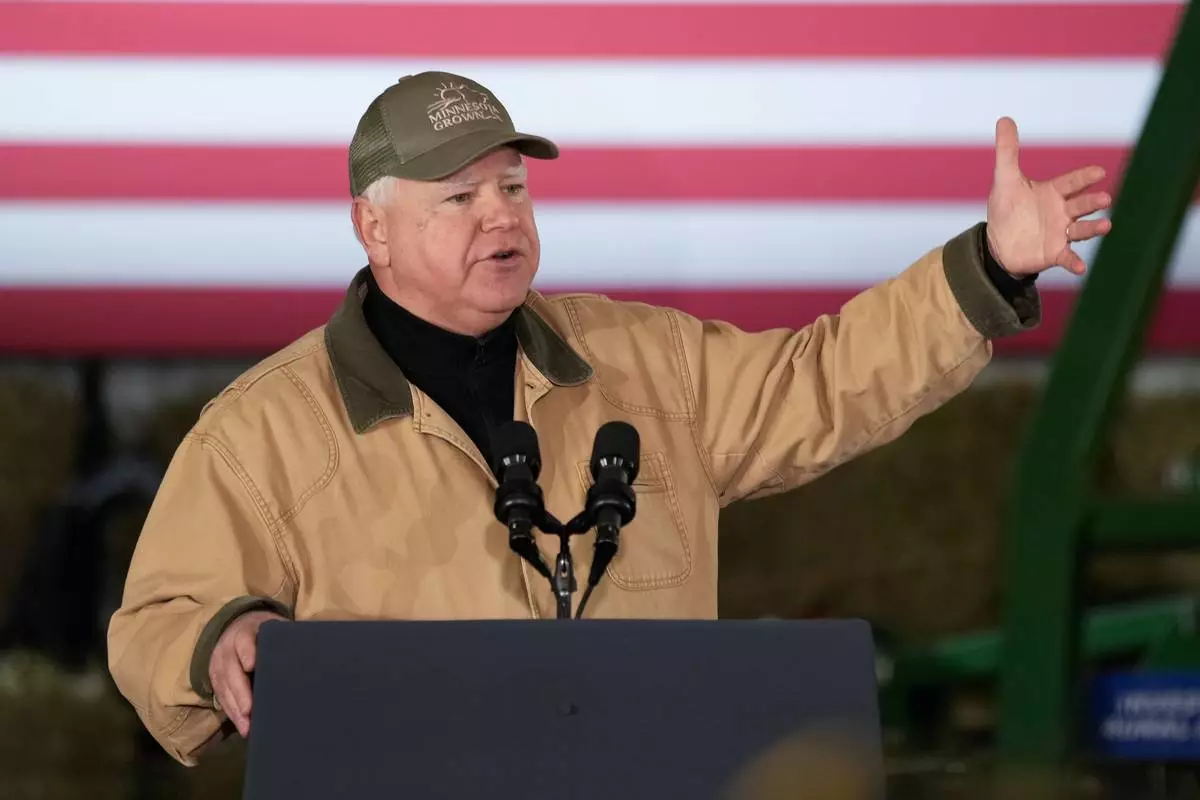
FILE - Minnesota Gov. Tim Walz speaks before President Joe Biden at Dutch Creek Farms, Nov. 1, 2023, in Northfield, Minn. (AP Photo/Abbie Parr, File)
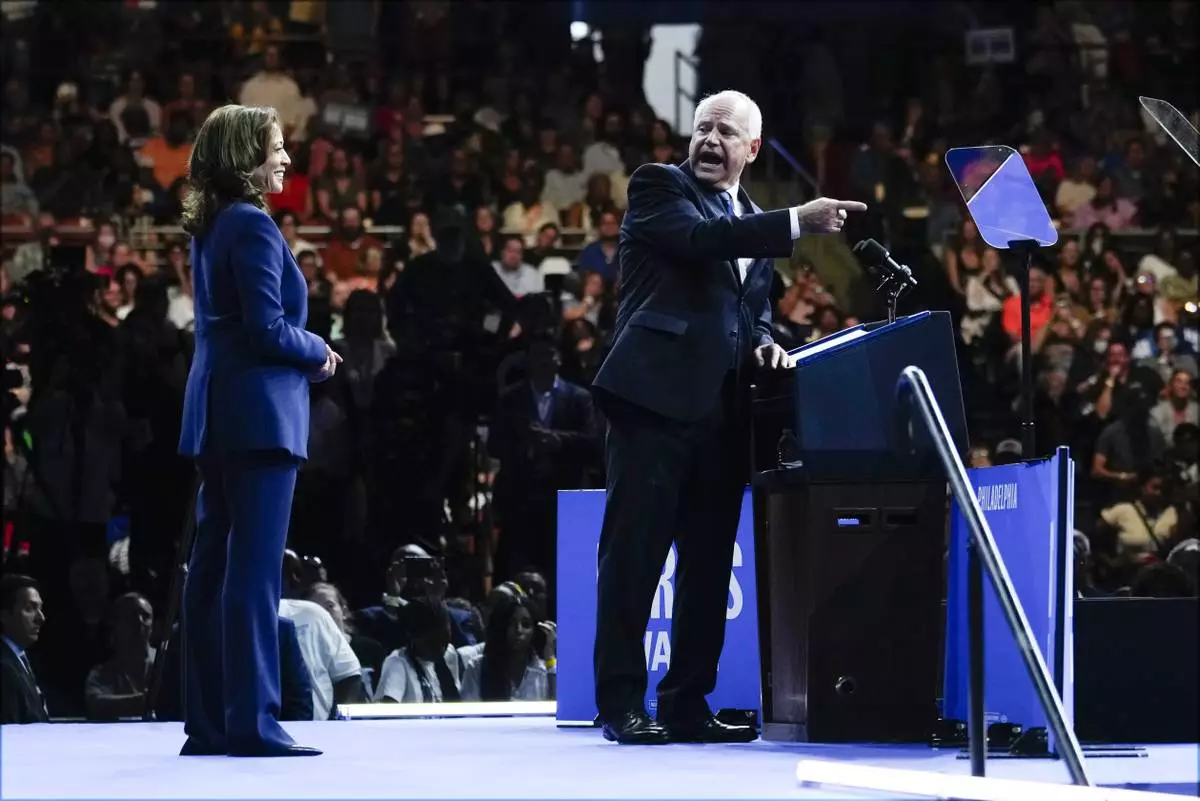
Democratic presidential nominee Vice President Kamala Harris and her running mate Minnesota Gov. Tim Walz speak at a campaign rally in Philadelphia, Tuesday, Aug. 6, 2024. (AP Photo/Matt Rourke)


